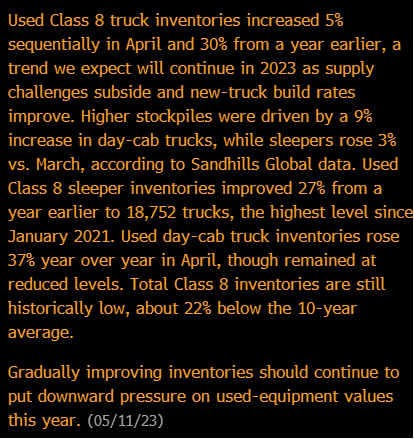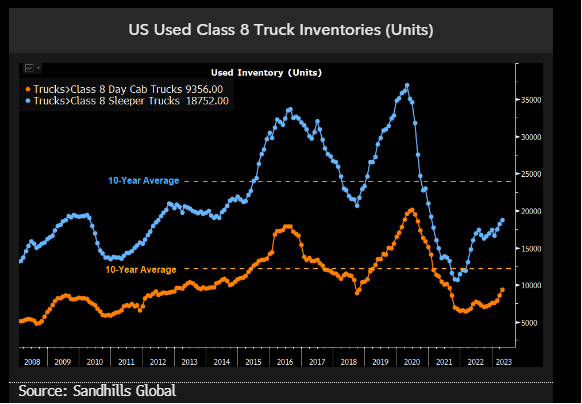🧵 1/15 On mining management teams. When fortunes flow to insiders who skim value instead of creating it, genuine strivers are mocked. Crony capitalism/shady entrepreneurs aren't just bad business they are an insult to the sweat that actually keeps the economy running.
2/15 Spotting a slick mining promote before it blows up your P&L is half the battle. Amir Adnani (Uranium Energy $UEC, Uranium Royalty $URG, GoldMining $GOLD, Gold Royalty $GROY) is a textbook case. Here are red flags—plus the counter-arguments for balance—to keep on your radar.👇
3/15 Serial-vehicle pattern
Since 2005 Adnani has IPO’d 4 resource names with the same macro stories (uranium or gold) and many of the same directors. Critics say: “Land the narrative, raise equity, repeat.” Fans say: “Entrepreneur building optionality in tough jurisdictions.”
Since 2005 Adnani has IPO’d 4 resource names with the same macro stories (uranium or gold) and many of the same directors. Critics say: “Land the narrative, raise equity, repeat.” Fans say: “Entrepreneur building optionality in tough jurisdictions.”
4/15 Dilution treadmill
$UEC share count: 37 m at IPO → 416 m basic today. $GOLD: 8 m → 187 m. Options refresh yearly. If the commodity chart pauses, you own less of the pie. Counter: equity beats project-level debt in a downturn.
$UEC share count: 37 m at IPO → 416 m basic today. $GOLD: 8 m → 187 m. Options refresh yearly. If the commodity chart pauses, you own less of the pie. Counter: equity beats project-level debt in a downturn.
5/15 Asset quality vs sizzle
$URC Flagship Texas ISR grades: 0.04–0.09% U₃O₈ (vs Cameco’s 15%+ Athabasca). $GOLD projects mostly sub-1 g/t PEAs. They’re “real,” but tier-3. Bull case: fully-permitted assets can sprint when uranium > $90/lb or gold breaks new highs.
$URC Flagship Texas ISR grades: 0.04–0.09% U₃O₈ (vs Cameco’s 15%+ Athabasca). $GOLD projects mostly sub-1 g/t PEAs. They’re “real,” but tier-3. Bull case: fully-permitted assets can sprint when uranium > $90/lb or gold breaks new highs.
6/15 Cash burn, no FCF
10+ yrs in, none of the entities throws off sustainable operating cash flow. Burn is funded by ATMs and bought-deal financings. Counter: Staying production-ready yet debt-free is a feature, not a bug.
10+ yrs in, none of the entities throws off sustainable operating cash flow. Burn is funded by ATMs and bought-deal financings. Counter: Staying production-ready yet debt-free is a feature, not a bug.
7/15 Cross-company web
Same insiders sit on each board; entities own stakes in one another. Hard to tell where arm’s-length ends and related-party begins. Supporters call it “synergy.” Skeptics call it “entrenchment.”
Same insiders sit on each board; entities own stakes in one another. Hard to tell where arm’s-length ends and related-party begins. Supporters call it “synergy.” Skeptics call it “entrenchment.”
8/15 Comp vs performance
2024 CEO pay: Adnani $4.3 m (UEC) + C$2.1 m (GoldMining). Group exec pay ≈ US$14 m/yr—more than some small producers that actually mine. Pro tip: compare C-suite pay to free cash flow per share—if FCF is zero, the math is easy.
2024 CEO pay: Adnani $4.3 m (UEC) + C$2.1 m (GoldMining). Group exec pay ≈ US$14 m/yr—more than some small producers that actually mine. Pro tip: compare C-suite pay to free cash flow per share—if FCF is zero, the math is easy.
9/15 Premium optionality pricing
$UEC EV/lb M&I ≈$6.9, above several producers. $GOLD trades at ~$25 EV/oz vs single-asset developers at $15–18. You’re paying up front for the blue-sky scenario. (Back of envelope computed on phone)
$UEC EV/lb M&I ≈$6.9, above several producers. $GOLD trades at ~$25 EV/oz vs single-asset developers at $15–18. You’re paying up front for the blue-sky scenario. (Back of envelope computed on phone)
10/15 Slippery timelines
$UEC 2011 deck: “1 Mlb/yr uranium by 2014.” 2017 deck: “PFS in 18 mo.” $URG 2020 deck: “4–6 producing royalties by 2024.” None hit. Macro tailwinds can forgive delays, but your IRR meter shouldn’t.
$UEC 2011 deck: “1 Mlb/yr uranium by 2014.” 2017 deck: “PFS in 18 mo.” $URG 2020 deck: “4–6 producing royalties by 2024.” None hit. Macro tailwinds can forgive delays, but your IRR meter shouldn’t.
11/15 When could it work?
•Uranium term > $70/lb ➜ Texas ISR restart
•Gold > $2,400/oz ➜ Brazil projects move
•A major overpays for permitted U.S. pounds
Own it only if you WANT that deep-out-of-the-money call option.
•Uranium term > $70/lb ➜ Texas ISR restart
•Gold > $2,400/oz ➜ Brazil projects move
•A major overpays for permitted U.S. pounds
Own it only if you WANT that deep-out-of-the-money call option.
12/15 Management due-diligence checklist
✅ Track dilution CAGR
✅ Map cross-links between entities
✅ Compare exec pay to FCF
✅ Pressure-test timeline realism
✅ Benchmark EV/resource vs peers
✅ Track dilution CAGR
✅ Map cross-links between entities
✅ Compare exec pay to FCF
✅ Pressure-test timeline realism
✅ Benchmark EV/resource vs peers
13/15 Balanced view
Promotion ≠ fraud. Building mines is brutal, especially in the U.S. uranium patch. Adnani’s companies do hold real permits and pounds/ounces. Question is whether the equity math works for you or management?
Promotion ≠ fraud. Building mines is brutal, especially in the U.S. uranium patch. Adnani’s companies do hold real permits and pounds/ounces. Question is whether the equity math works for you or management?
14/15 If You Must
Treat promote heavy developers as trading sardines, not freezer meat (??, whats the opposite of sardines, steak? 🥩) . Small starter positions, tight stops, scale up only once cash flow shows. Never forget the opportunity cost.
Treat promote heavy developers as trading sardines, not freezer meat (??, whats the opposite of sardines, steak? 🥩) . Small starter positions, tight stops, scale up only once cash flow shows. Never forget the opportunity cost.
15/15 Bottom line: Promoters keep the lights on in this sector—but so does your skepticism. Separate story from economics, and you’ll avoid paying 2× NAV for a PowerPoint mine. Not investment advice—just one PM’s risk checklist.
• • •
Missing some Tweet in this thread? You can try to
force a refresh








